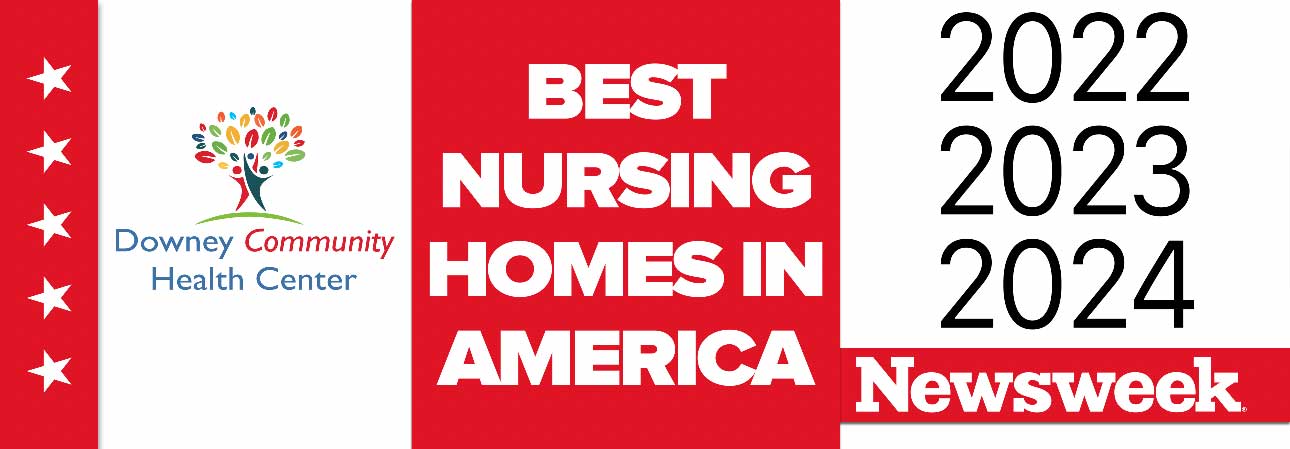Medicare plays a critical role in providing short-term nursing home care for many individuals, particularly after hospital stays for rehabilitation or recovery. However, it’s essential to understand the limits of Medicare’s coverage.
Typically, Medicare covers up to 100 days of skilled nursing care, with conditions for payment changing after the first 20 days. When this coverage ends, many families are unprepared for the suddenly incurred costs, making it imperative to understand these coverage limits and plan accordingly.
The purpose of this guide is to help patients and their families navigate the transition when Medicare coverage ceases. We aim to clarify the options available, such as private pay, Medicaid, and other financial aids while providing practical steps to effectively manage this shift in both care and costs. Understanding these aspects is vital to ensuring continued care and financial stability.
Get to Know Our Skilled Nursing Team: Meet the professionals dedicated to your care.
Understanding Medicare’s Coverage for Nursing Home Care
Medicare’s coverage for nursing home care is limited and specific. It primarily covers short-term stays in skilled nursing facilities (SNFs) for rehabilitation following a qualifying hospital stay.
Medicare Part A will fully cover the first 20 days of a rehabilitative stay in a nursing home. From days 21-100, patients may be responsible for a daily coinsurance fee. After 100 days, Medicare stops providing financial assistance for custodial costs, though it may continue to cover certain skilled or medical care services. To be eligible for Medicare coverage in a nursing home, several criteria must be met:
- The patient must have had a qualifying hospital stay of at least three consecutive days as an inpatient.
- Admission to the SNF must occur within 30 days of leaving the hospital.
- The patient must require daily skilled nursing services prescribed by a doctor.
It’s crucial to understand that Medicare pay does not cover long-term custodial care, which includes nursing homes and assistance with daily living activities like bathing, dressing, and eating. This type of care is typically what most nursing home residents need.
For those with Medicare Advantage plans, coverage may vary. Some plans might have different rules regarding coinsurance or offer additional benefits.
In summary, while Medicare can provide significant coverage for a short-term hospital-related medical condition, and rehabilitative nursing home stays, it’s not designed to cover long-term care needs. Patients and their families should carefully consider their options and potential private insurance or out-of-pocket costs when planning for extended nursing home care.
Reasons Medicare Might Stop Paying
Medicare’s coverage for nursing home care can cease for several important reasons, and understanding these can help patients and their families better prepare for potential changes in their care situation.
The most straightforward reason is the exhaustion of the 100-day limit. Medicare provides coverage for up to 100 days of skilled nursing facility care per benefit period. Once this limit is reached, the financial responsibility shifts entirely to the patient. This makes it crucial for patients and their caregivers to keep a close eye on the number of days used.
An improvement in the patient’s medical condition can also lead to Medicare stopping payments. If a patient’s health improves to the point where they no longer require daily skilled care, Medicare may determine that continued coverage is unnecessary. This aligns with Medicare’s policy of only covering care that is deemed medically necessary.
Another significant factor is the transition from short-term rehabilitative care to long-term custodial care. Medicare is designed to cover skilled nursing and rehabilitation services, not long-term assistance with daily living activities. If a patient’s needs shift primarily to custodial care, Medicare will cease coverage.
Medicare may also stop paying if the patient is not showing progress or is no longer benefiting from skilled therapy services. Additionally, if a patient fails to meet eligibility criteria, such as not having a qualifying 3-day hospital stay prior to admission or being admitted more than 30 days after hospital discharge, Medicare won’t cover the stay.
Lastly, if there’s a change in care needs and the patient no longer requires daily skilled nursing or rehabilitation services, Medicare may discontinue coverage, even if the 100-day limit hasn’t been reached. Being aware of these potential scenarios can help families plan for future care needs and explore alternative options when Medicare coverage ends.
Financial Impact on Families When Medicare Stops Paying
When Medicare stops paying for nursing home care, the financial impact on families can be substantial. The average monthly cost for a private room in a nursing home in the United States is $9,733, while a semi-private room costs $8,6694. These expenses can quickly deplete savings and strain family budgets, particularly if they’re also paying for an elder law attorney.
After Medicare coverage ends, patients and their families become responsible for the full cost of care. This sudden shift can be overwhelming, especially for those who haven’t prepared for long-term care expenses. To calculate ongoing costs, families should consider not only the base rate for room and board but also additional fees for specialized care, medications, and personal items.
The financial burden often extends beyond the patient to their spouse and adult children. Families may need to make difficult decisions, such as selling assets, using retirement savings, or exploring Medicaid eligibility. Some may consider long-term care insurance or life insurance policies with long-term care riders as potential funding sources.
It’s crucial for families to plan ahead and explore all available options. This may include researching Medicaid eligibility criteria, investigating long-term care insurance policies, or considering alternative care arrangements. Early financial planning and open family discussions can help mitigate the impact and ensure quality care for loved ones.
Exploring Other Payment Options
When Medicare stops covering nursing home care, several alternative payment options become crucial for families to explore. Medicaid often steps in as a primary source of long-term care coverage for those who meet its eligibility criteria. To qualify, individuals must have limited income and assets, with specific thresholds varying by state. Medicaid typically covers the full cost of nursing home care for eligible recipients.
Long-term care insurance can be a valuable resource for those who have planned ahead. These policies can help cover extended nursing home stays, potentially easing the financial burden on families. However, it’s important to purchase such insurance before needing care, as it becomes difficult or impossible to obtain once health issues arise.
For those who don’t qualify for Medicaid and lack long-term care insurance, private pay becomes the primary option. This involves using personal savings, selling assets, or pooling family resources to cover nursing home expenses. Some families explore reverse mortgages or life insurance policies with long-term care riders as additional funding sources.
Veterans and their spouses may have access to special benefits through the Department of Veterans Affairs. The Aid and Attendance benefit, for instance, can provide additional funds to help cover the cost of nursing home care for eligible veterans.
Exploring these options early and thoroughly can help families prepare for the significant costs associated with long-term nursing home care.
Planning Ahead for Nursing Home Care Costs
Planning ahead for nursing home care costs is crucial for financial security and peace of mind. Estate planning plays a vital role in this process, involving the creation of legal documents like living wills, healthcare powers of attorney, and trusts. These tools help protect assets and ensure your wishes are respected if you become incapacitated.
Financial strategies for long-term care may include long-term care insurance, life insurance policies with long-term care riders, and setting up specific funds for care expenses. It’s important to explore these options early, as premiums are typically lower when purchased in good health.
For those who may need to rely on Medicaid after Medicare coverage ends, careful planning is essential. This may involve spend-down strategies and asset protection techniques, such as establishing Medicaid Asset Protection Trusts. These trusts can help shield assets while maintaining Medicaid eligibility. However, it’s crucial to work with an experienced attorney, as Medicaid has a 60-month lookback period in many states.
When choosing a nursing home, consider factors like quality of care, staff-to-resident ratios, and overall atmosphere. Research facilities thoroughly, read reviews, and visit in person if possible. Also, consider the home’s ability to meet specific care needs and its acceptance of your chosen payment method, whether it’s private pay, long-term care insurance, or Medicaid.
Steps to Take When Medicare Coverage Ends
When Medicare coverage for nursing home care ends, it’s crucial to take proactive steps to manage the transition. Start by discussing care options with the nursing home administrators. Be open about your financial situation and inquire about potential cost reductions or payment plans. Many facilities are willing to negotiate, especially if they have vacancies.
When negotiating costs, research average rates in your area and ask about any available discounts. Consider requesting a lower daily rate, waived fees for certain services, or a cap on annual price increases3. Don’t hesitate to shop around and compare prices at different facilities.
Explore alternative care settings that might be more affordable. Assisted living facilities, home health care, or adult day care centers could provide suitable care at a lower cost. For veterans, investigate VA benefits that might help cover expenses.
Remember to reassess the patient’s care needs regularly. If skilled nursing is no longer necessary, transitioning to a less intensive care setting could significantly reduce costs while still meeting the individual’s needs.
Emotional and Practical Considerations for Families
When Medicare coverage for nursing home care ends, families face significant emotional and practical challenges. The sudden financial burden can cause stress, anxiety, and uncertainty for both patients and their loved ones. It’s crucial for families to provide emotional support during this transition, reassuring the patient that they’re not alone.
Family members often step into caregiving roles, which can be both rewarding and demanding. This may involve assisting with daily tasks, coordinating care, or even providing full-time care at home. While this can help reduce costs, it’s important for caregivers to maintain their own well-being and seek respite care when needed.
Coping with the stress of long-term care expenses requires a multifaceted approach. Families should explore support groups, counseling services, and community resources designed for caregivers. Financial advisors can help develop strategies to manage costs, while social workers can guide families to local assistance programs.
Open communication within the family is essential. Regular family meetings can help distribute responsibilities, address concerns, and ensure everyone is on the same page regarding care decisions and financial planning.
Summary
In conclusion, navigating the transition when Medicare coverage for nursing home care ends requires careful planning and open communication. It’s essential to understand the available options, such as long-term care insurance, Medicaid eligibility, veterans’ benefits, and private pay, to manage the financial burden.
Families should plan ahead by involving estate and financial planning to ensure they are prepared for the significant costs associated with nursing home care. Additionally, it is crucial to regularly reassess care needs and explore alternative care settings, which may offer a more affordable solution while still meeting the patient’s needs.
Emotional support and practical considerations, such as negotiating with nursing home administrators and engaging in family discussions about care responsibilities, are vital during this period. By being proactive and informed, families can better ensure that care transitions smoothly and the patient’s well-being is prioritized.
Contact Us Today: Find out how we’ve been serving Downey residents since 1980







